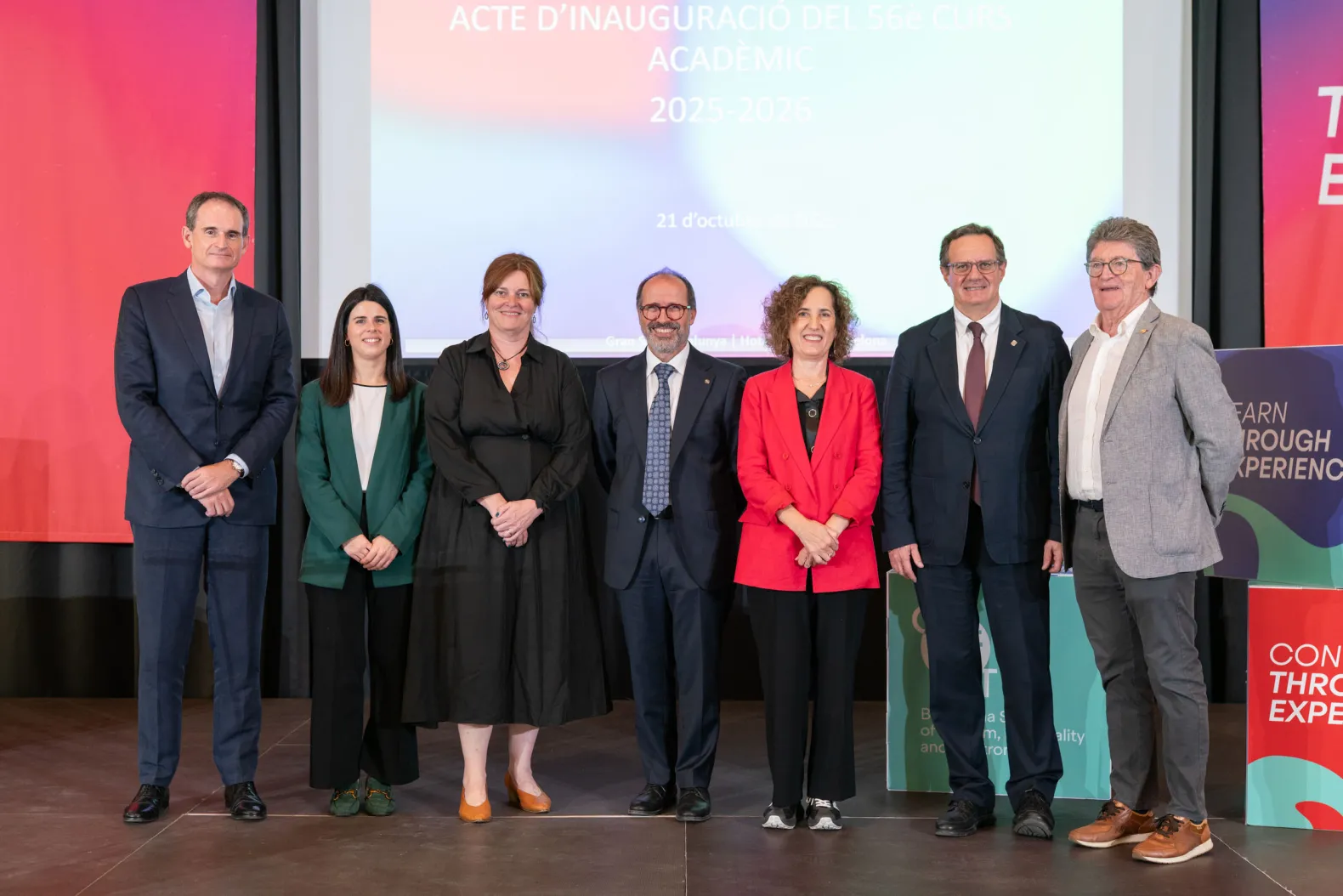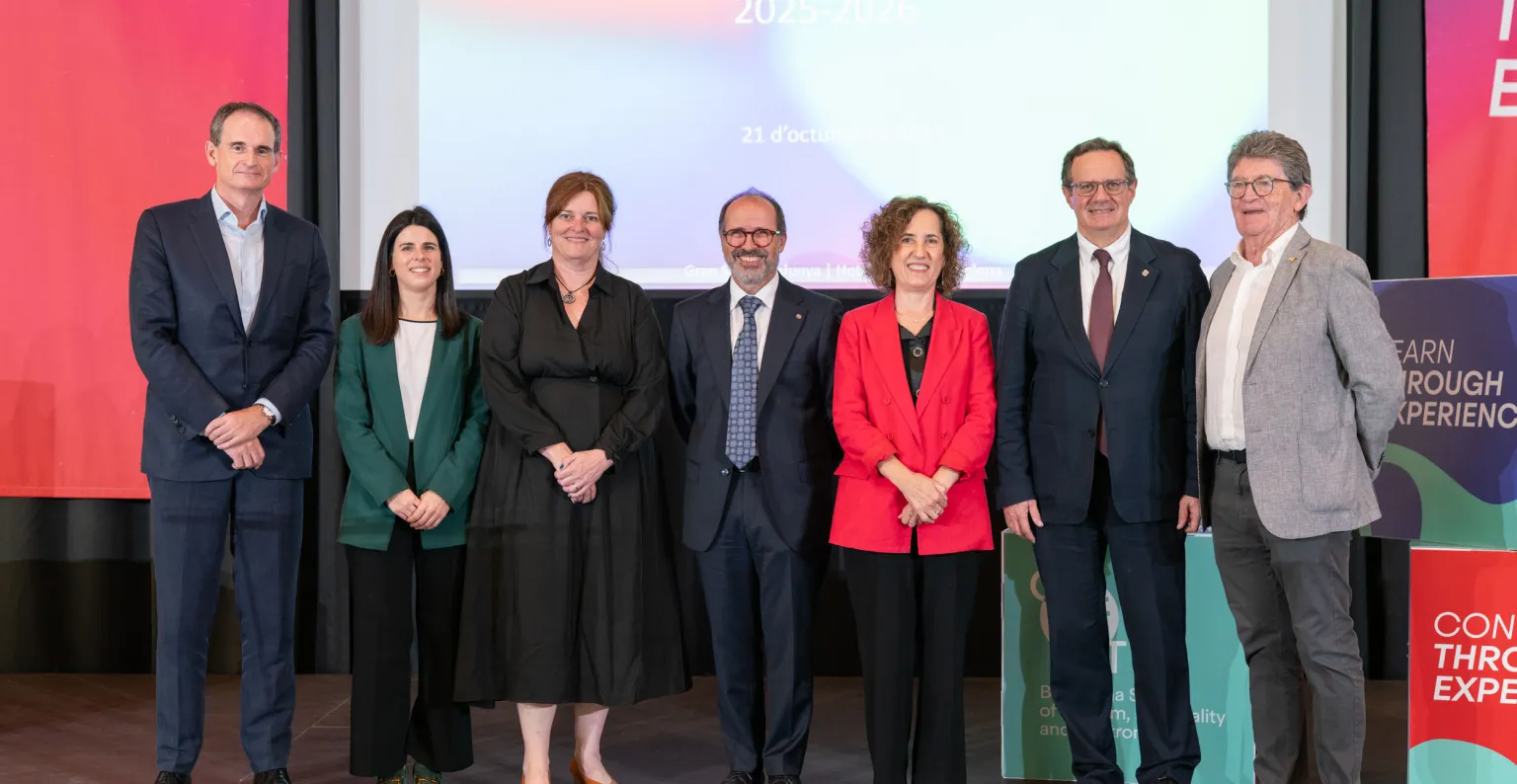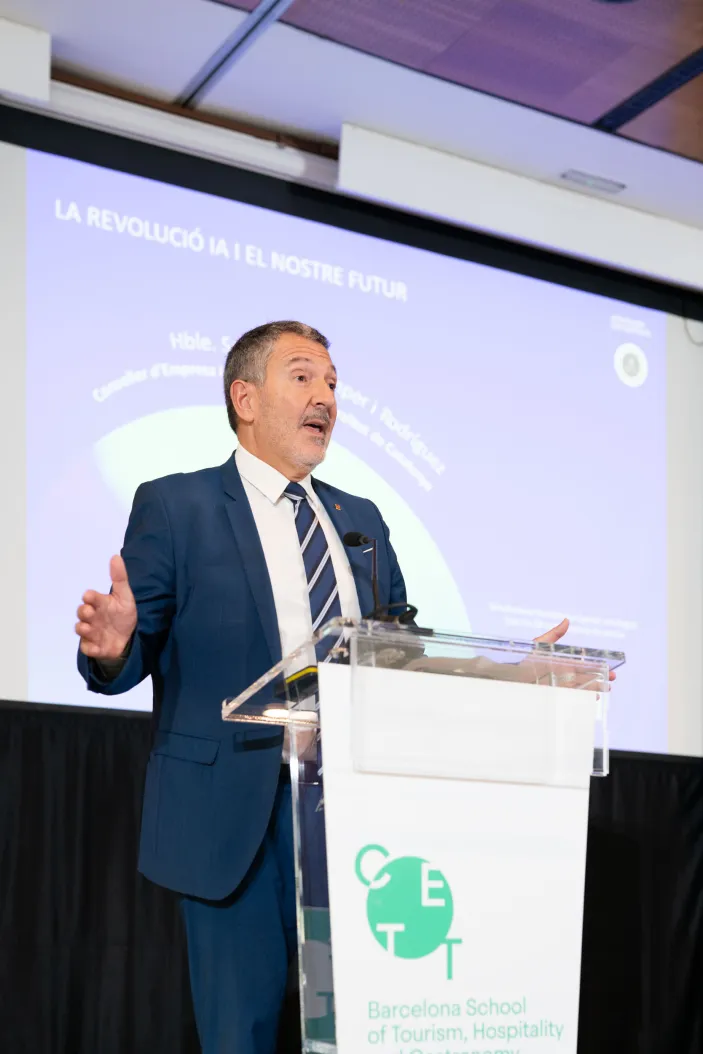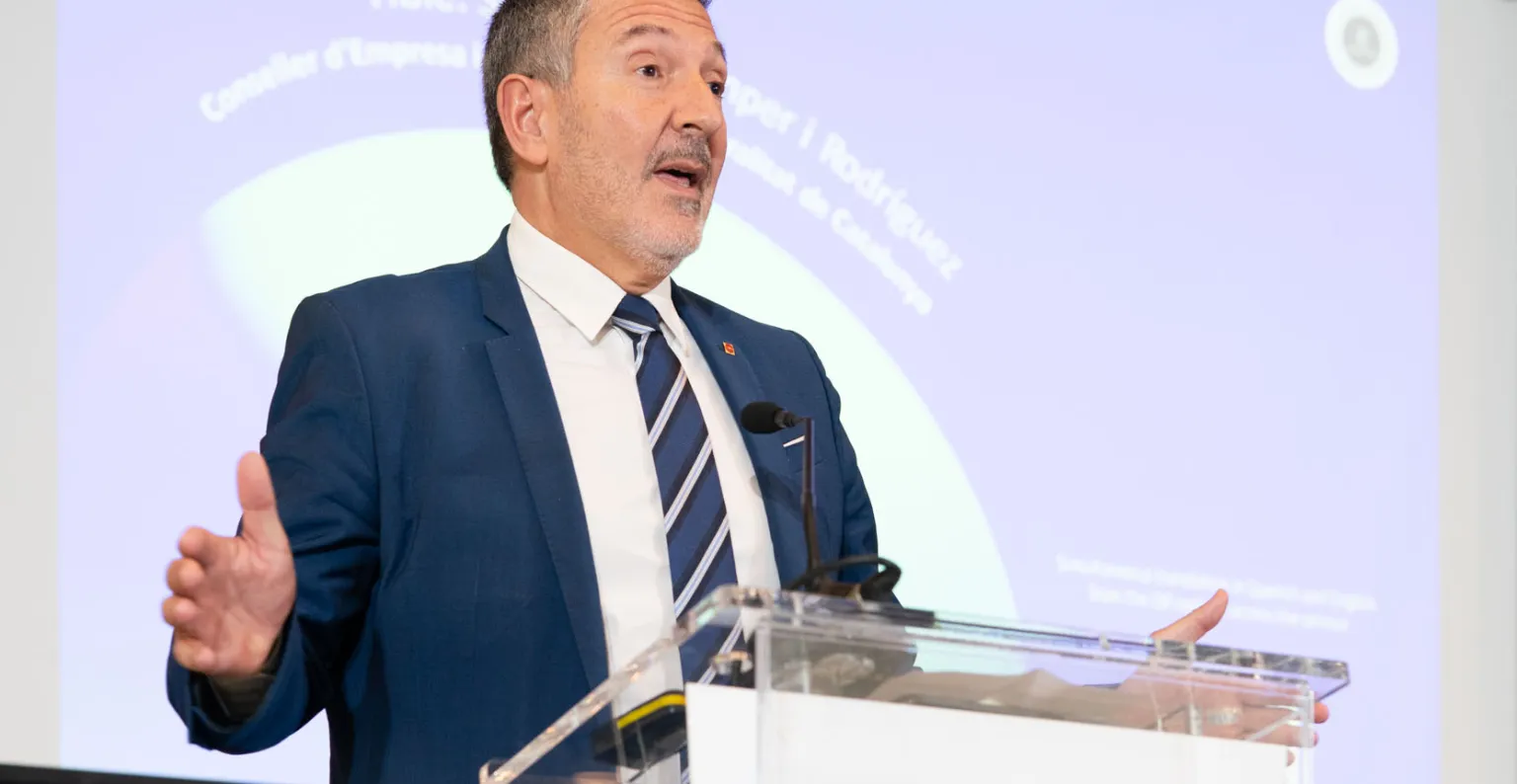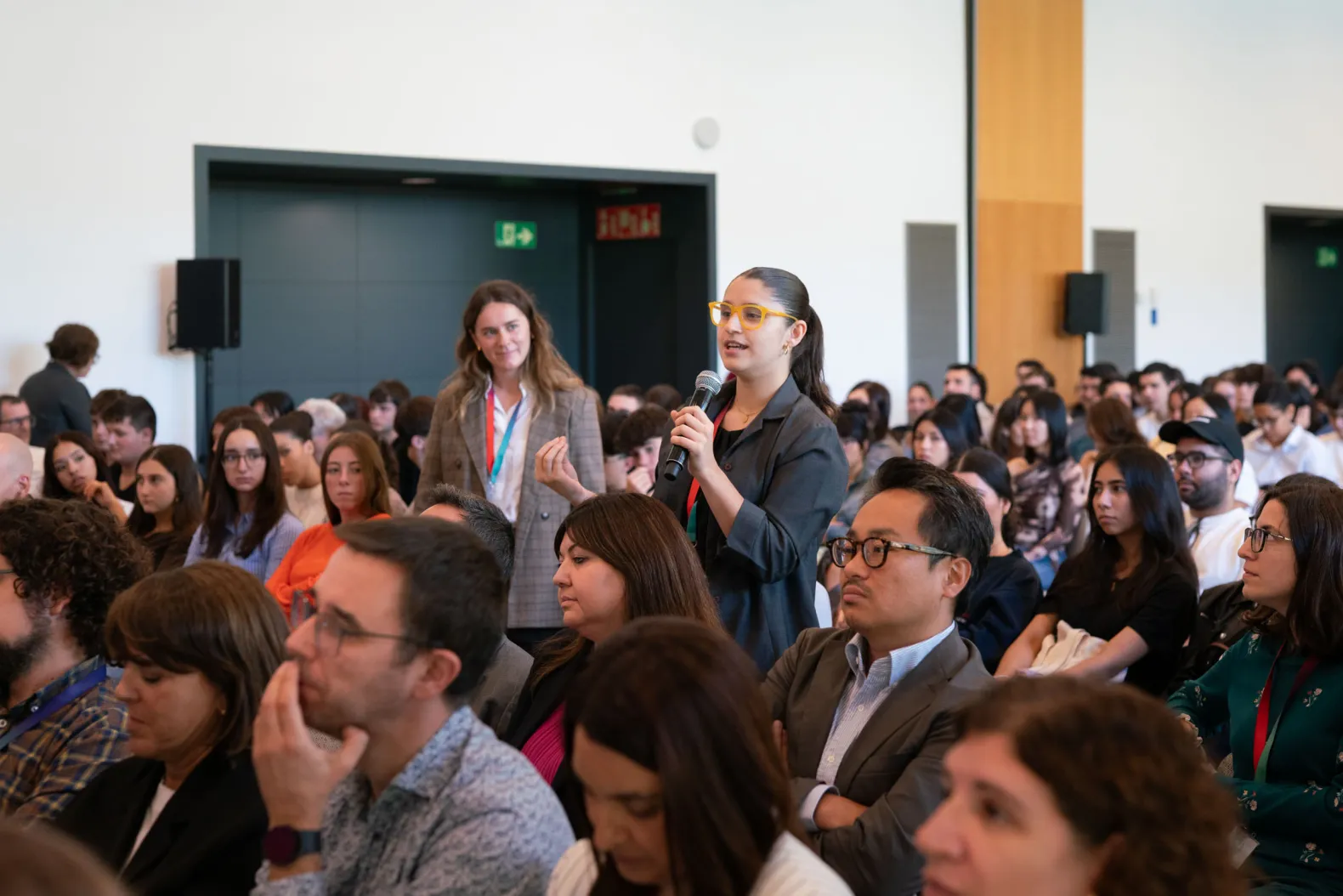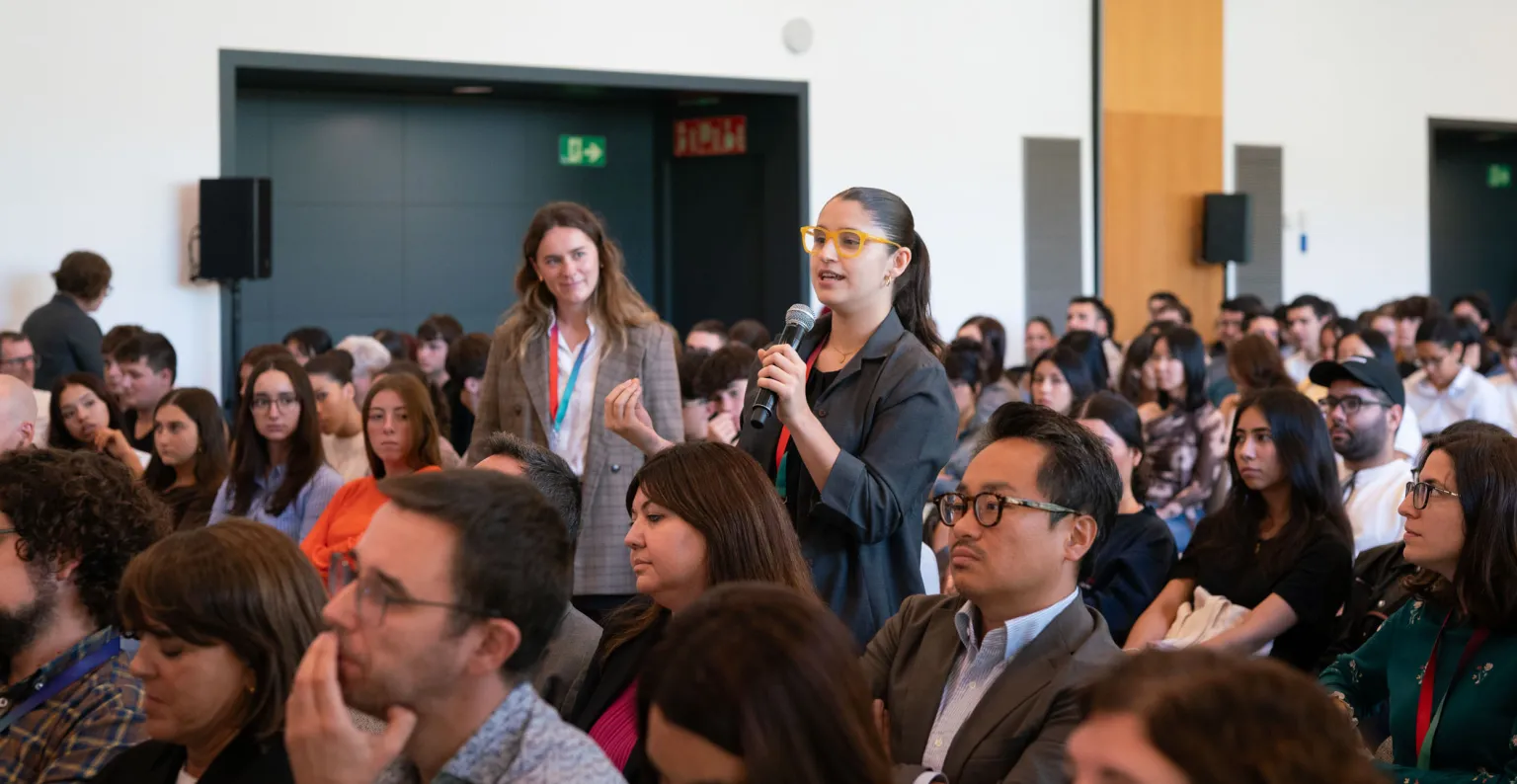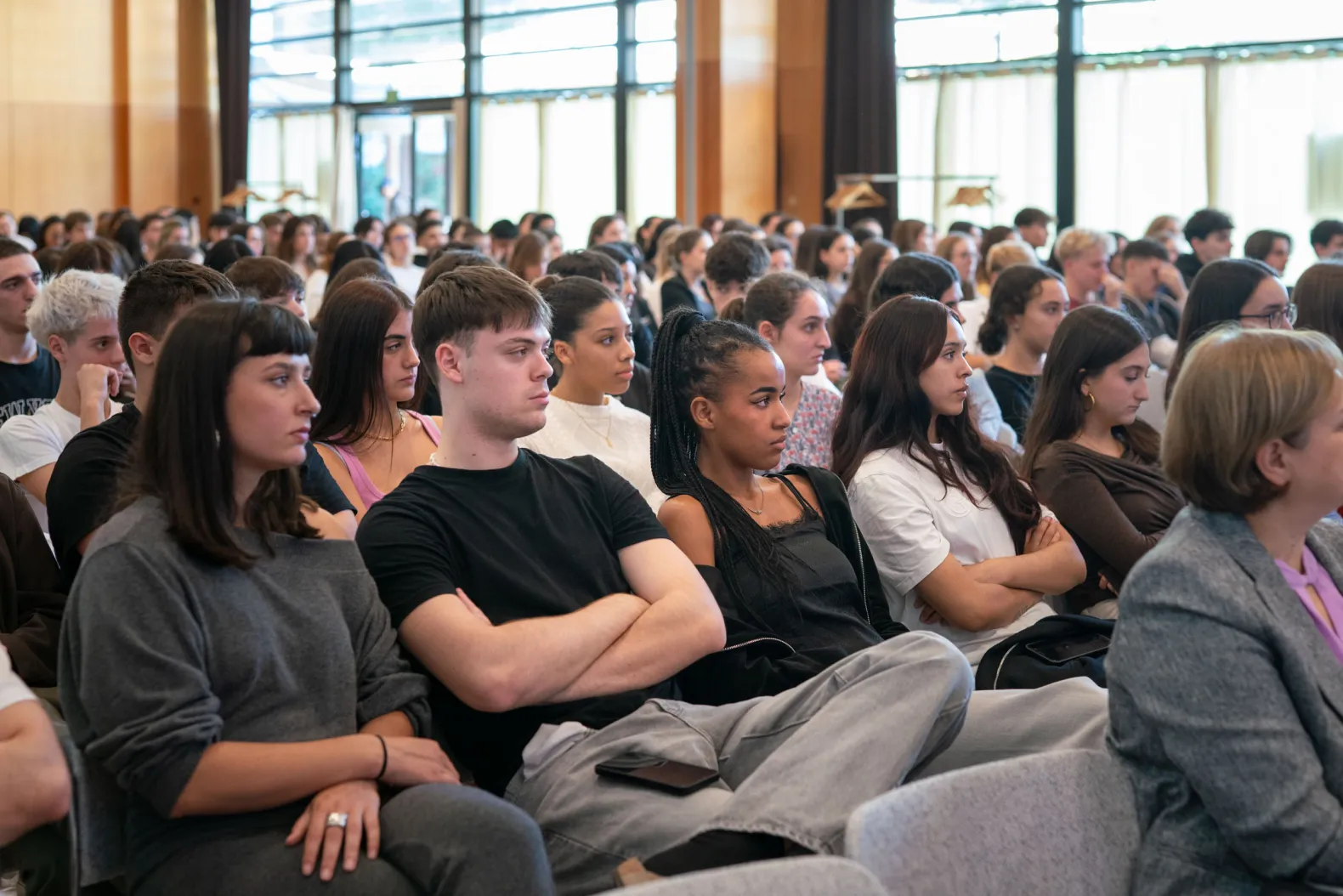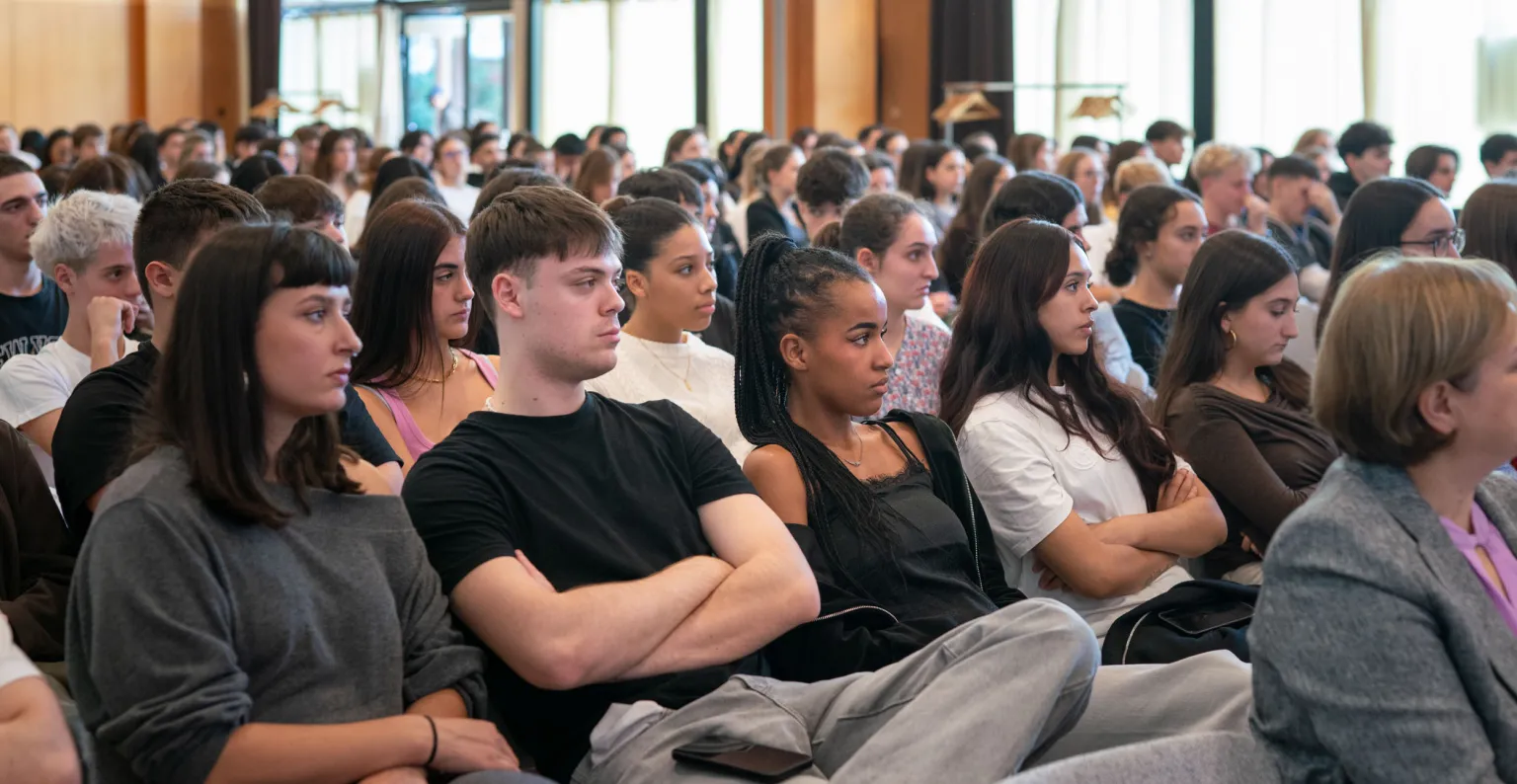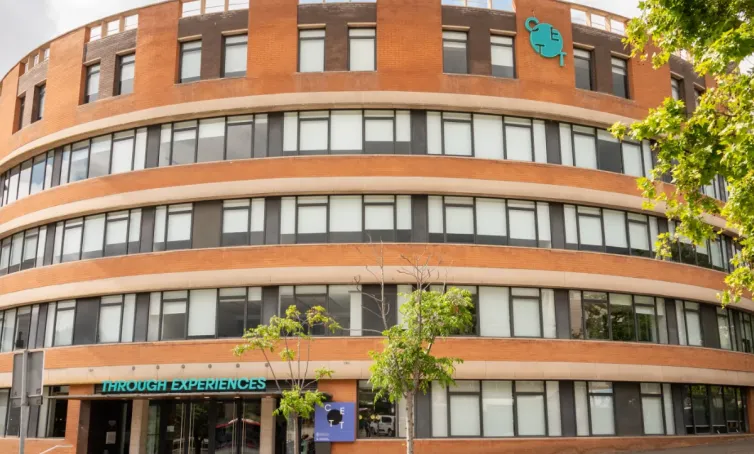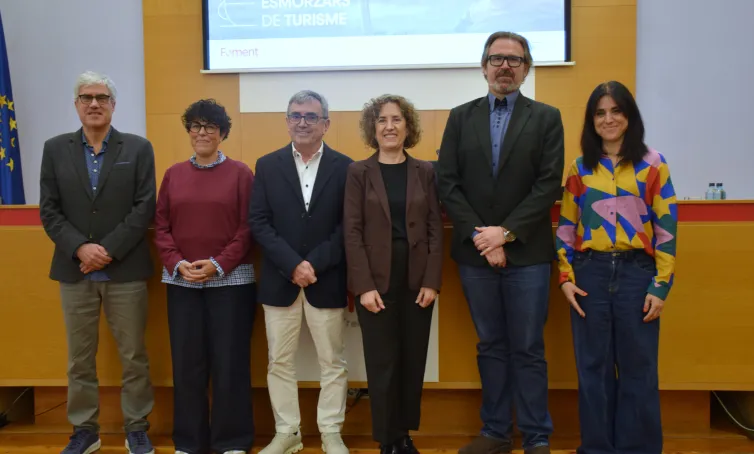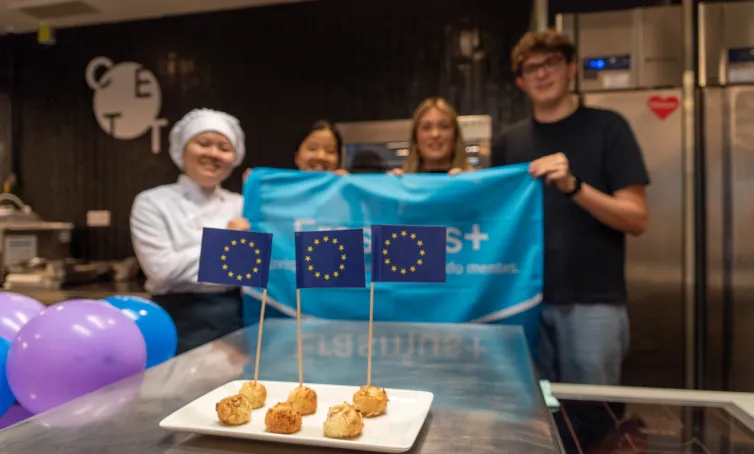Inaugural Lesson 2025–2026 | Xantal Llavina: “AI is here to stay, and what will make the difference is how we use it”
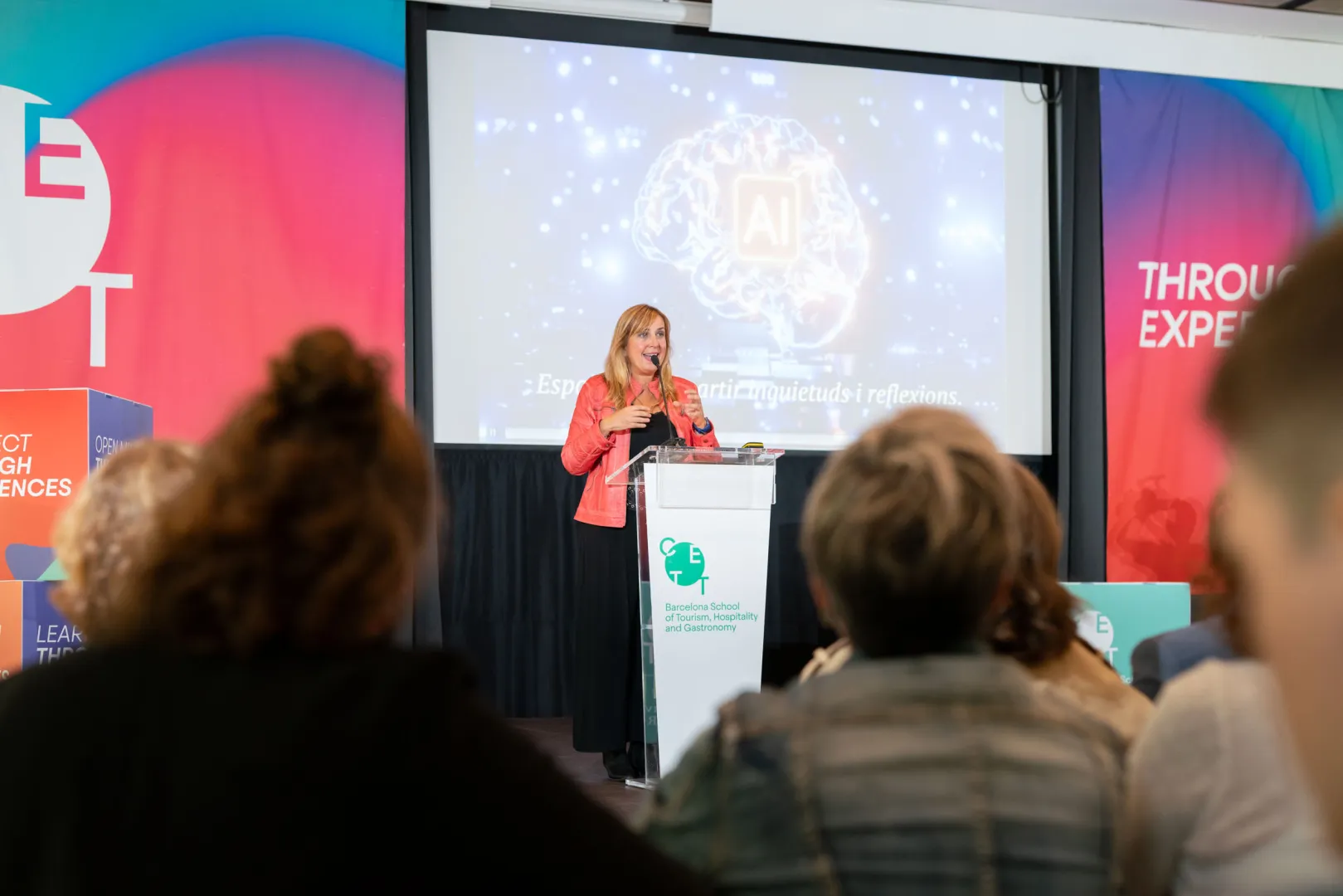
Xantal Llavina, a journalist specializing in innovation, technology, and transformation, presents the inaugural lesson of the 56th academic year at the CETT-UB Campus.
Xantal Llavina is a journalist and one of the most influential voices in innovation, technology, and digital transformation in Catalonia. Throughout her professional career, she has worked for more than twenty years in the media and currently directs and hosts the program “Revolució 4.0” on Catalunya Ràdio. She has also been recognized with several awards, such as the Dona TIC Divulgadora Award and the Alumni Ambassador Award.
Llavina argues that the digital revolution is not only technological but also human. We talk with her to learn about the effects of artificial intelligence on society and academic activity.
-
How would you define the current moment we are living in regarding the digital and AI revolution?
We are living in an exciting time — a true digital revolution. Generative artificial intelligence is a new tool that gives us superpowers, allowing us to do incredible things, but it also forces us to rethink how we want to use it. We are not more human because of technology; we are humans with technology.
Generative AI, such as ChatGPT or other applications, is nothing more than a powerful assistant that can improve our lives and our work, as long as we use it with judgment, values, and critical thinking. We must remember that it also makes mistakes, that it can have hallucinations, and that is why we need well-trained and responsible people to work closely with it.
- We are individuals living in society. How have these changes affected us individually and socially?
We have been profoundly changed. We are a hyperconnected society, but at the same time, more emotionally fragile. People have never been so well-informed, yet never so exposed. Technology has transformed the way we interact, the way we work, and even the way we think. Now we must learn to live with this new digital reality without losing our human essence and our values. The challenge is to keep values, attitude, and effort as fundamental pillars, because they are what truly define us as people. Technology is a tool that enhances us, no matter the sector.
- In the educational context, how would you say that new ways of accessing information and knowledge have changed our relationship with learning?
Education has entered a new era. Access to knowledge is infinite and immediate, and this is a great opportunity, but also a responsibility. Today, it is not necessary to know everything, but to know how to learn, how to verify information, and how to think critically. Generative AI can be a great ally in the classroom if it is used as a tool to enhance creativity and reflection, not to replace human reasoning. The teaching community plays a key role in teaching how to use technology wisely and with values, and must also think about the professions of the future.
- AI can help us do many things, but it cannot make us more human. How should we train talent to make the most of technology without losing the “human factor” along the way?
The future belongs to the most human professionals. AI can perform calculations, write texts, or analyze data, but it cannot feel, empathize, or be conscious. We must see AI as an aid, not as a replacement. Working with it can free up time for us to do what no machine can: think, create, and inspire emotion. And let’s never forget that behind every great technological advancement, there are people with values, attitude, and effort.
- You often say that creativity is a tool for the future. How can it be cultivated or activated in such an automated environment?
Creativity is precisely what makes us unique. It’s not just about creating art, but about finding new solutions and seeing the world through different eyes. In a world where technology automates processes, creativity is the driving force that allows us to innovate and adapt. It must be nurtured in schools, in companies, and in life. And to awaken it, we need attitude: curiosity, the desire to experiment, and no fear of making mistakes. AI can help inspire us, but the original idea always comes from a human mind — and we always talk about this on Revolució 4.0 on Catalunya Ràdio.
-
Having role models is essential to developing aspirations. As one of the leading female voices in tech communication, how do you think we can strengthen the presence of women in a field historically dominated by men?
Women have always been there, but often invisible. It is necessary to make female role models visible and ensure that girls see that technology is also for them. We need relatable models — women who show that it is possible to lead, create, or undertake projects in the digital field. We must promote a more entrepreneurial and equal society, where diversity is seen as a value that enriches innovation and progress. We need women in ICT.
- AI can amplify biases if there is no critical perspective. What role do women and diversity play in today’s technological development?
An essential role. If we want fair and inclusive artificial intelligence, we need diverse teams. AI learns from us, and if we don’t reflect the diversity of the real world, we will perpetuate the same mistakes and inequalities. Women and the plurality of perspectives bring sensitivity, empathy, and new ways of seeing problems. That is the key to building technology with human values.
- What advice would you give to students starting the new academic year at CETT, with so many technological changes on the horizon?
May they embrace change without fear, but with awareness. That AI is here to stay is evident, but what will make the difference is how we use it. May they be curious, make mistakes, learn, and have an entrepreneurial attitude toward life, with critical thinking and rigor in their work. Technology is a powerful tool that helps us, but values, effort, and passion are what truly matter.
